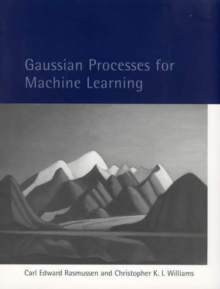
Learning in Graphical Models Paperback / softback
Edited by Michael I. (University of California, Berkeley) Jordan
Part of the Adaptive Computation and Machine Learning series series
Paperback / softback
Description
Graphical models, a marriage between probability theory and graph theory, provide a natural tool for dealing with two problems that occur throughout applied mathematics and engineering-uncertainty and complexity.
In particular, they play an increasingly important role in the design and analysis of machine learning algorithms.
Fundamental to the idea of a graphical model is the notion of modularity: a complex system is built by combining simpler parts.
Probability theory serves as the glue whereby the parts are combined, ensuring that the system as a whole is consistent and providing ways to interface models to data.
Graph theory provides both an intuitively appealing interface by which humans can model highly interacting sets of variables and a data structure that lends itself naturally to the design of efficient general-purpose algorithms. This book presents an in-depth exploration of issues related to learning within the graphical model formalism.
Four chapters are tutorial chapters-Robert Cowell on Inference for Bayesian Networks, David MacKay on Monte Carlo Methods, Michael I.
Jordan et al. on Variational Methods, and David Heckerman on Learning with Bayesian Networks.
The remaining chapters cover a wide range of topics of current research interest.
Information
-
Item not Available
- Format:Paperback / softback
- Pages:644 pages
- Publisher:MIT Press Ltd
- Publication Date:20/01/1999
- Category:
- ISBN:9780262600323
Information
-
Item not Available
- Format:Paperback / softback
- Pages:644 pages
- Publisher:MIT Press Ltd
- Publication Date:20/01/1999
- Category:
- ISBN:9780262600323










